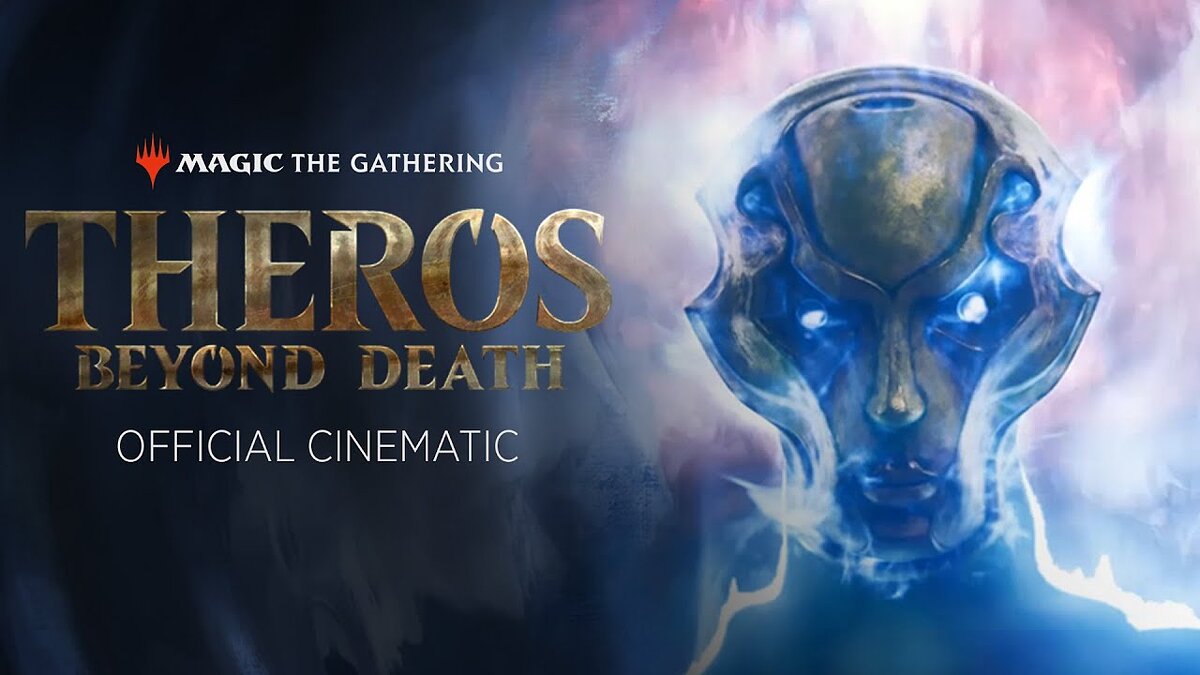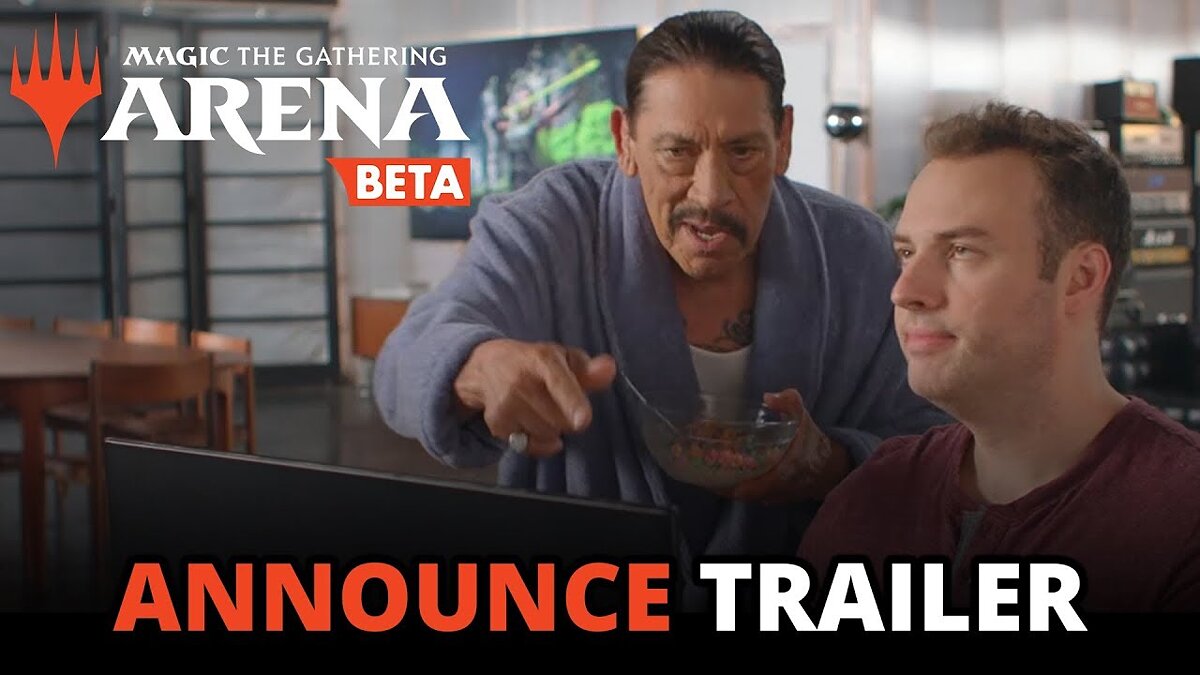Magic: The Gathering Arena
Magic: The Gathering Arena is a fantasy collectible card multiplayer game with strategy elements and an isometric view, based on the popular CCG Magic: The... Read more
Magic: The Gathering Arena is a fantasy collectible card multiplayer game with strategy elements and an isometric view, based on the popular CCG Magic: The Gathering. From the very beginning, players have access to 280 cards, and their number will increase by a thousand annually.
Additionally, the game is being developed on a completely new Game Rules Engine, which the developers hope will allow them to bring all their ideas to life. These include support for current and future Magic rule sets, alongside the physical version of the game, implementation of rules and effects at the card level, which has expanded gameplay activities.
Unlike Hearthstone: Heroes of WarCraft and Thronebreaker: The Witcher Tales, MTG: Arena offers a complex, intricate gameplay with extensive possibilities and strategy selection for victory. Currently, Arena's gameplay is focused on playing with the cards available in the decks, without delving into creating complete game sets as provided by the paper standard.
The gameplay is built on mana of five colors — white, blue, green, black, and red, which is generated by Land cards. Subsequently, cards of Creatures and Spells are chosen according to the color, which consume this mana. The more Land cards you have, the more actions you can perform; they stay with the player throughout the match and do not interact with other cards.
The main actors are Creature cards, which are positioned in front of the player's avatar on the board, blocking the path of enemies. Each creature has attack and health points, but there are also special properties; for instance, a creature can fly and will be inaccessible to ground creature cards. All damage dealt to creatures is healed at the end of each turn.
There are also Spell cards, which act in various ways — not only enhancing the attack or health of a Creature card but also freezing an enemy, instantly killing them, and other different effects.
MTG: Arena offers turn-based gameplay, with turns passing between opponents, but with the ability to counter each other's actions if the right cards are available. First, the first player lays out their Land and Creature cards, decides whether to attack or defend, after which the combat phase begins, where their cards attack the opponent or defend. Then the right to attack passes to the opponent.
Each player determines their actions based on the current card layout, state of lands, and availability of spells, and can also give commands during the combat phase. Attack often alternates with defense, countering, or even restoring the commander and army. To win, you must reduce the other player's health points to zero before the opponent does the same to you.
This is just a general overview of the mechanics; the rules of Magic have many nuances that can overturn the chosen strategy or at least disrupt all plans. But, unlike the physical version, the computer game itself knows the rules, nuances, individual subtleties and prompts, for example, which card can be played now and which lacks mana, so players can focus directly on the gameplay.
The action of Arena takes place in the same world as Magic: The Gathering — literary works in the fantasy genre. It is a multiverse where there are many different worlds: Mirrodin (a world of metal), Kamigawa (a world of Japanese mythology), Ravnica (a hive world in the style of Eastern Europe), Dominaria (a world of humans), Phyrexia (a world of machines), and others.
Some of these worlds are inhabited by humans; others — by elves, dwarves, intelligent plants; still others — by robots; fourth — by angels and demons; fifth — by mechanical beings. Thanks to this, the lore of the game is constantly enriched with hundreds of new cards.
The best representatives of these worlds and races become heroes (villains), acquire a specialization (wizard, inventor), and are embodied in the form of a card. This also allows you to play as your favorite characters in a certain game style.
Newcomers to MTG: Arena receive a library of basic cards and ready-made decks from these cards, but the main way to get new cards is to win matches (daily and weekly), complete daily quests, or invest money in the game.
In any case, the player receives a "booster" — a set with random cards (duplicates are possible), and thus replenishes their library, can customize and improve card decks. Decks are assembled from 60 any cards, and the player does not need to collect the entire deck — it is enough to take the favorite ones, and the game will balance them itself. However, experienced players form decks independently according to certain criteria.
In Arena, a booster contains only 8 cards, divided into four quality levels: "common" (black border), "uncommon" (silver border), "rare" (gold border), and "mythic" (dark red border). As expected, the higher the quality of the card, the stronger it is.
Since the starter decks are quite weak and suitable for playing against other starter decks, it will be quite difficult to compete against a more or less advanced player. The principle "the strongest card is the credit card" also applies in MTG: Arena, so you can find ready-made sets of budget decks, allowing you to play at an average level.
MTG: Arena is distributed under a free-to-play model with microtransactions. The game has 2 currencies available — gold, earned during battles, and crystals, which can be purchased for real money. Both currencies can be spent on buying "boosters," but you are also allowed to buy full card sets, which will cost even more. Monetization is quite aggressive.
A successful and experienced player can earn 7 "boosters" per week, which, combined with 8 cards in it (1 mythic or rare, 2 uncommon, and 5 common cards), gives 56 cards per week. Since MTG: Arena has thousands of cards, collecting full game decks and sets without investing money in the game will be a difficult, inconsistent, and extremely time-consuming process.
The developers of MTG: Arena offer players several modes, according to their skill level:
- Regular game with a collected deck – a mode without an entry fee, in which a pair of random players determine who is better and whose cards are cooler by winning two out of three matches.
- Обычная рейтинговая игра – все то же самое, только за победы или поражения игроку высчитывают его рейтинг, присутствует 6 градаций от «начинающего» до «мифически крутого» уровня, и за удержание ранга игрок получает особые награды.
- Игра напрямую с другом – те же правила, что в паре режимов выше, только вместо рандомного игрока возможность сыграть с кем-то конкретно.
- Режим «Запечатанная колода» довольно необычен — игрок получает на руку 6 «бустеров», вскрывает их, а затем собирает колоду из 40 карт, чтобы сразиться с другими участниками.
- События – более сложный формат с оплатой за вход золотом или кристаллами. Действуют продолжительное время. Доступ заканчивается через определенное число побед (обычно 5 или 7) или поражений (2 или 3), причем участие окупается только в случае качественной игры. Утешительный приз – три карты «необычного» и выше класса.
- Обычный драфт. Требуется оплата за вход золотом или кристаллами, для большего интереса, присутствуют ограниченные по времени события, делающие игру менее предсказуемой (в одном событии надо победить два раза из трех, в другом играют до первой победы). Игроки одновременно выбирают карты из трех специальных драфтовых «бустеров» по 15 карт, 15 раундов подряд. Из выбранных карт игрок составляет колоды по, минимум, 40 карт.
- Рейтинговый драфт – все тоже самое, что в обычном драфте, но только с учетом системы рейтинга из 6 градаций, причем рейтинг в драфте и в обычной игре – это разные системы и разные таблицы лидеров. Доступ заканчивается через определенное число побед (обычно 5 или 7) или поражений (2 или 3), а участие окупается только при хорошей серии побед.
- Wizards of the Coast планирует масштабные киберспортивные турниры предназначенные для наиболее опытных игроков. Они охватят как Arena, так и классическую Magic: The Gathering, призовой фонд в 2019 году составит 10 000 000 $, поровну на каждую. Еще 1 000 000 $ будут разыгрывать на специальном мероприятии Mythic Invitational.
- В игре нет и не появится функции обмена или перепродажи карт другим игрокам. По словам разработчиков, это может ухудшить экономику игры и нарушить механику подбора игроков для сетевой игры.
- Поскольку новые карты добавляются регулярно, игроку нужно учитывать актуальность своих колод и постоянно учиться у других. Перспективная сегодня колода завтра может растерять все преимущества и её надо будет освежить новыми картами.
- Arena не заменит Magic: The Gathering Online, поддержку которой не прекращают и она будет хранилищем всего набора карт, когда-либо появлявшихся в серии. В Arena же будут только стандартные наборы карт, от момента выхода игры и далее.
- Также Arena не считается преемником Magic Duels, хотя имеет ту же целевую аудиторию.
System requirements and PC test
- Windows 7
- CPU: AMD Athlon 64 X2 Dual Core 5600+
- RAM: 2 GB
- VRAM: 1 GB
- Video Card: GeForce 8800 GTX
- Windows 10
- CPU: Intel Core 2 Quad Q9300
- RAM: 4 GB
- VRAM: 1 GB
- Video Card: GeForce GTX 560



























